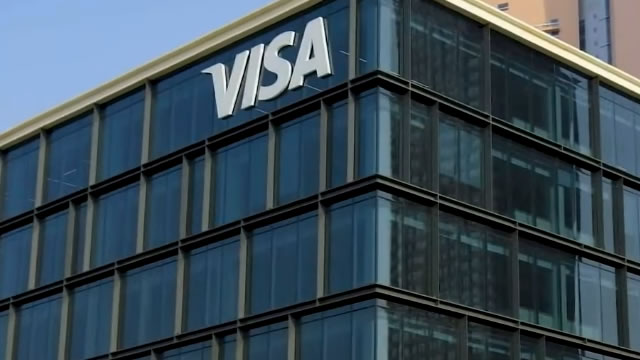
Visa Inc (V)

Visa and MasterCard Strike a Fee Deal. The Winners and Losers.
The agreement would allow merchants to lower fees and reject certain credit cards. But what does it mean for the stocks—and shoppers.

Visa, Mastercard reach swipe-fee settlement: How it'll affect your wallet
Visa and Mastercard settlement cuts credit card swipe fees by 0.1%, potentially saving consumers. But the retail advocacy group NRF doesn't believe that's enough.

Visa, Mastercard reach new settlement with merchants. Will it shake up credit-card rewards?
A proposed settlement in a long-running merchant lawsuit would give stores more freedom to block rewards cards, but it remains to be seen if they'd risk angering customers.

Visa and Mastercard Near Deal With Merchants That Would Change Rewards Landscape
The deal under discussion would lower credit-card interchange fees for merchants, but could make it harder for consumers to use rewards cards at the register.

Think Visa's Q4 Was Good? Wait Till You See What's Under the Hood
V's steady Q4 beat hides a deeper growth story; its expanding digital, tokenization and stablecoin ecosystem is reshaping payments.

Is IBKR's Karta Visa Card a Step Toward Its Diversification Strategy?
Interactive Brokers expands beyond brokerage with its Karta Visa card, uniting trading, saving, investing and spending in one seamless platform.

XRP: The Next Visa? Why Ripple's $5 Trillion Network Could Justify A Bigger Valuation
XRP now processes over $5 trillion a year, offering faster, cheaper, and more secure settlements than SWIFT's legacy system. Ripple's network expansion and CBDC pilots position XRP as the backbone for future global payments. CEO Brad Garlinghouse targets 14% of SWIFT's $150 trillion volume, implying $40 trillion in flows by 2030.

Visa (NYSE: V) Stock Price Prediction and Forecast 2025-2030 (Nov 2025)
So far this year, Visa Inc. (NYSE: V) has unveiled a scam disruption initiative, adoption of its “Tap to Phone” technology has soared, it unveiled its vision for artificial intelligence (AI) in commerce, and it expanded its capabilities in the digital currency space.

Visa: When The Market Worries About The Wrong Disruption
Visa once again delivered double-digit growth, $40B in annual revenue, and $21.6B in free cash flow, proving that the company remains a cash machine even as digital payments increase. The market's fear of stablecoin disruption overlooks Visa's role as the bridge between fiat and digital money — the company already settles USDC and is expanding across multiple blockchains. Trading near 33X forward earnings, Visa remains a high-quality compounder fairly priced for its growth; I see upside only if the market re-rates it on renewed confidence rather than fear.

Visa Q4 financial results top estimates on stronger payment volume growth
Visa Inc (NYSE:V, ETR:3V64) late Tuesday reported better than expected financial results for its fourth quarter 2025, as the global payments giant's payment volume growth accelerated quarter over quarter. The company's revenue for the period rose 12% year over year to $10.7 billion, surpassing the $10.6 billion analyst consensus estimate provided by FactSet.

Visa Inc. (V) Q4 2025 Earnings Call Transcript
Visa Inc. (NYSE:V ) Q4 2025 Earnings Call October 28, 2025 5:00 PM EDT Company Participants Jennifer Como - Head of Investor Relations Ryan McInerney - President, CEO & Director Christopher Suh - Chief Financial Officer Conference Call Participants Sanjay Sakhrani - Keefe, Bruyette, & Woods, Inc., Research Division James Faucette - Morgan Stanley, Research Division Jason Kupferberg - Wells Fargo Securities, LLC, Research Division David Koning - Robert W. Baird & Co. Incorporated, Research Division Darrin Peller - Wolfe Research, LLC Rayna Kumar - Oppenheimer & Co. Inc., Research Division Kenneth Suchoski - Autonomous Research US LP Bryan Keane - Citigroup Inc., Research Division Harshita Rawat - Sanford C.

Visa CEO Says Company Now a Payments ‘Hyperscaler'
Visa's fiscal fourth quarter results, released after the markets closed on Tuesday (Oct. 28) showed growth in debit and credit spending, a surge in tokenized credentials and momentum in stablecoin-related activity. The company's materials indicated that U.S. payments volume was up 8%, accelerating from the previous quarter.







